It takes a village: Responding to humanitarian crises in Haiti
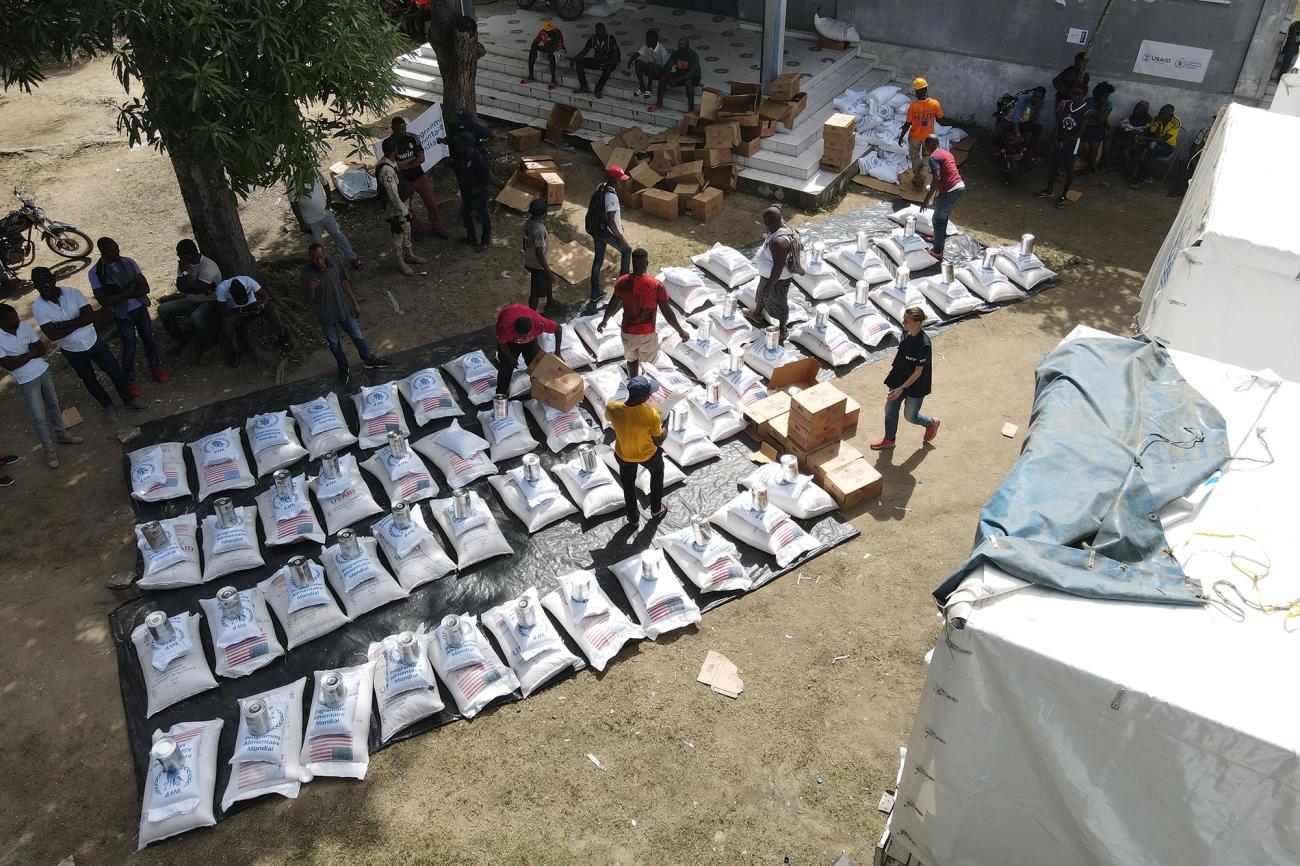
Port-au-Prince
It takes a village to raise a child, or so the popular saying goes and the same image of collective endeavour is true for supporting people caught up in humanitarian crises.
The theme for this year’s World Humanitarian Day which is celebrated annually on 19 August, is “It Takes a Village” and UN Haiti has been looking at how humanitarian partners in the country have been supporting each other and the many people who require help.
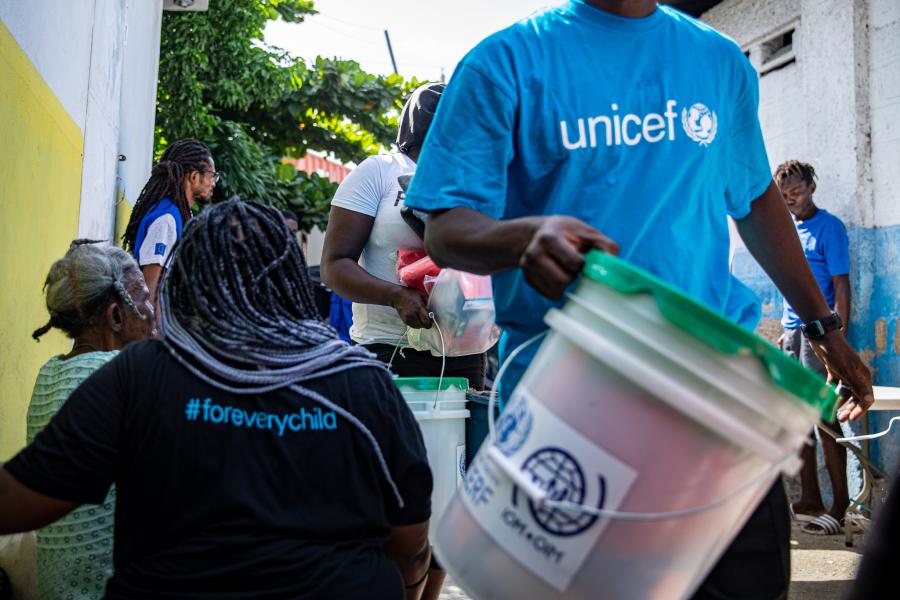
A humanitarian crisis has developed in the Cité Soleil commune of Port-au-Prince as rival gangs fight for control of a neighbourhood where some of the capital’s most vulnerable people live. The UN started deliveries life-saving support in July, and UNICEF’s Chief of emergency, Dorica Tasuzgika Phiri was amongst the first to go in.
“I met pregnant women in Cité Soleil who had never seen a doctor despite being just a couple of weeks from their due date, and many malnourished infants with mothers who admitted they have been unable to breastfeed or find appropriate food for their children. The mobile health and nutrition clinics were really a ray of hope and many patients thanked us and asked us to come again soon. I was really proud of us that day.
The emergency section leads UNICEF’s response to the urgent needs of women and children affected by gang violence and who stayed within the conflict afflicted areas, as well as the internally displaced people who have ran from the conflict. Once we had the greenlight to access Cité Soleil, my team was the first on the ground the very next day to evaluate the needs, as part of a UN joint mission and ensure we could rapidly activate the first life-saving responses for children and their families.”
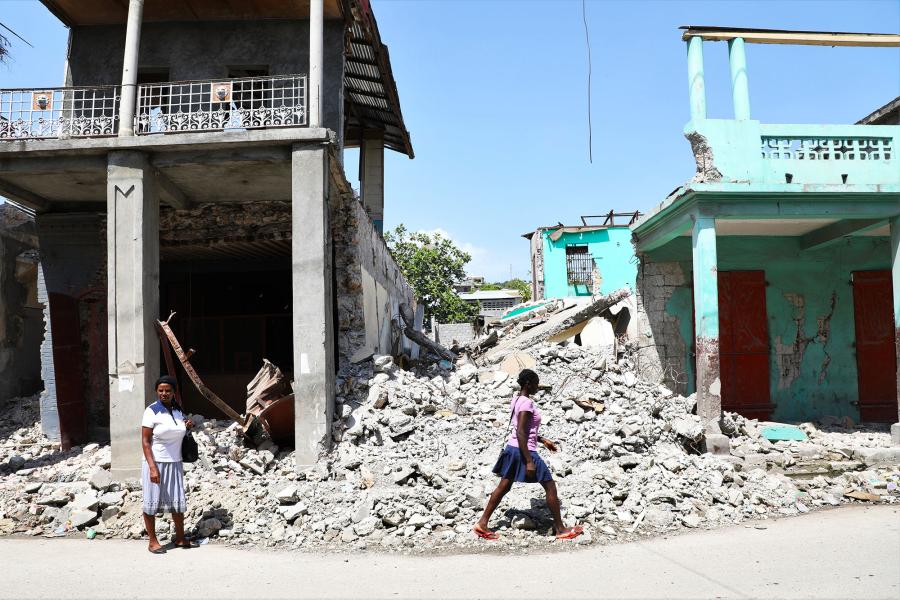
In August 2021, the south of Haiti was struck by a devastating 7.2 magnitude earthquake which led to the deaths of more than 2,200 people and injured 12,800 more. UN humanitarian agencies mobilized to support close to 500, 000 people.
Building on lessons learned from the 2010 earthquake and 2016 hurricane responses, the United Nations family and partners teamed up to accelerate relief and recovery efforts. As a member of UNDP’s pool of SURGE Advisors, Nermine Mohamed Wally arrived to support the UNDP Haiti team in coordinating its response.
“I have been trained to be sent into crisis situations in the aftermath of disasters. The role of a UNDP SURGE team is to deliver immediate and targeted support to the affected population in a very short period of time.
When crisis hits, traditional humanitarian actions focus on delivering lifesaving services such as food, health kits and temporary shelter to alleviate suffering. The UNDP SURGE team complements these efforts by recalibrating local capacities and working with the community and local actors to sustain the delivery of services when the humanitarians exit.
In three days, we were able to visit three departments and eight communities most affected by the earthquake. When I spoke with people who lost their homes, I was struck by their will to stand up and regain their lives — many were already working to repair or rebuild.”
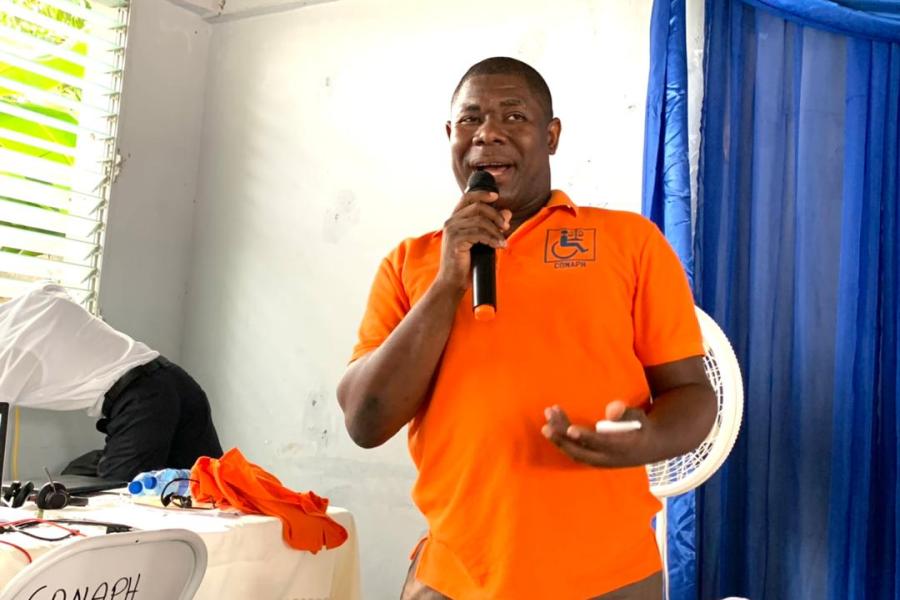
Haitian civil society association and UN partner, the National Coalition of Associations of Disabled People (CONAPH) supported disabled people who had been affected by the earthquake. Emilio Neas is the Coordinator.
“CONAPH is a Haitian civil society association based in the South working for the promotion of the fundamental rights and freedoms of people with disabilities. Their daily lives are particularly difficult, especially after the August 2021 earthquake, as they face social and environmental barriers and discrimination that prevent them from thriving in their communities.
Today, I lend my voice to the thousands of people with disabilities, especially women and girls, the elderly, affected by the earthquake who are too often marginalized. We are striving to build a more inclusive society that ensures dignity for all, even in times of crisis.”
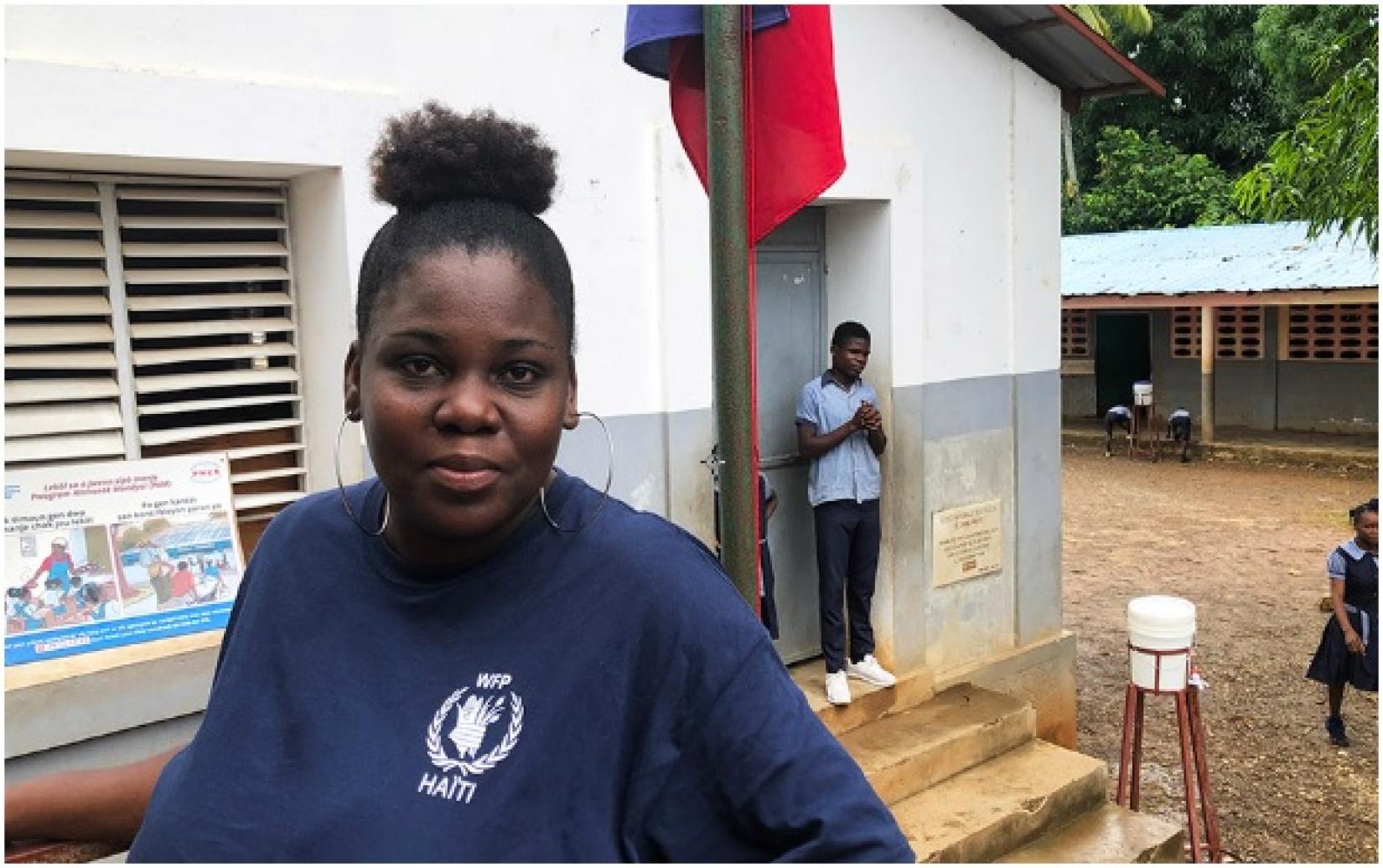
Communities in rural earthquake-affected areas are being supported by the World Food Programme’s (WFP) school feeding initiative. WFP’s Maguelita Varin says it helps families on the road to recovery.
“School feeding programmes in the earthquake zone are helping communities to recover more quickly. Many children are not getting enough to eat at home, so providing food at school encourages them to attend classes and gives them more energy to study.
We’re working alongside UNICEF which has provided schoolbooks and desks as well as handwashing facilities. We have to take a holistic approach because if children don’t wash their hands and then eat they can get sick. And if they don’t have any books they’re not able to study even if they have eaten well.
We have school feeding programmes which serve food donated from overseas but also programmes which buy food locally from farmers. This helps to sustain the local economy and ultimately will help communities to recover and build their resilience.”
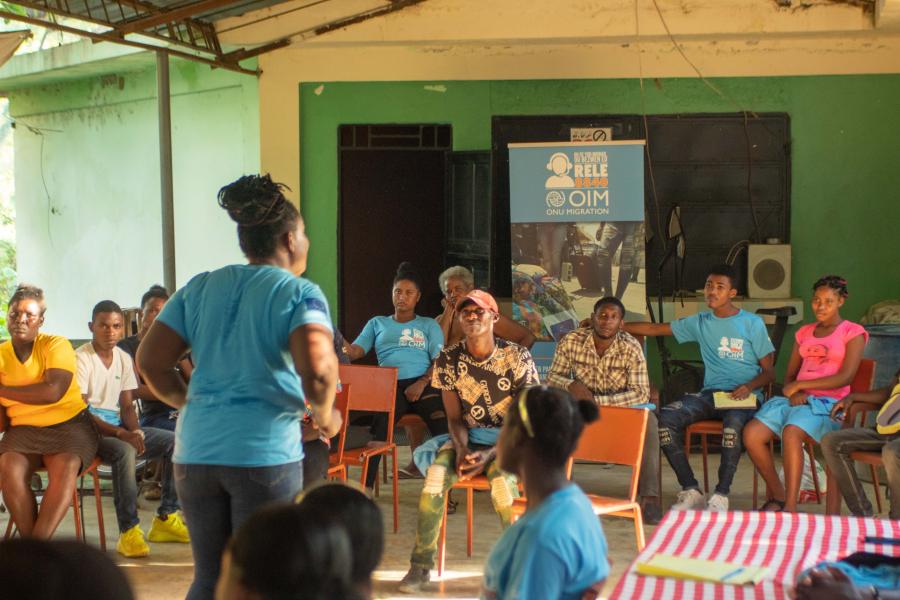
Many Haitians are trying to leave the country for a variety of different reasons, including insecurity, gang violence and the lack of economic opportunities. The UN’s International Organization for Migration (IOM) has been working with local and national partners to educate people about the challenges of irregular migration, including at the border between Haiti and the Dominican Republic.
IOM partnered with the feminist organization Nègès Mawon. This partnership raised awareness in border communities about the risks of irregular migration and human trafficking, while encouraging vaccination against COVID-19, and promoting an IOM hotline.
The campaign took place at both official and unofficial migrant crossing points on the border between Haiti and the Dominican Republic. Local communities were able to participate in innovative activities, such as participatory theatre sessions, where the idea was to develop a short story highlighting the main problems faced by Haitian migrants.
The interventions of the audience revealed the problems present in the targeted communities. For example, participants reported that human trafficking and smuggling are common in the area around Cerca la Source and Tilory.
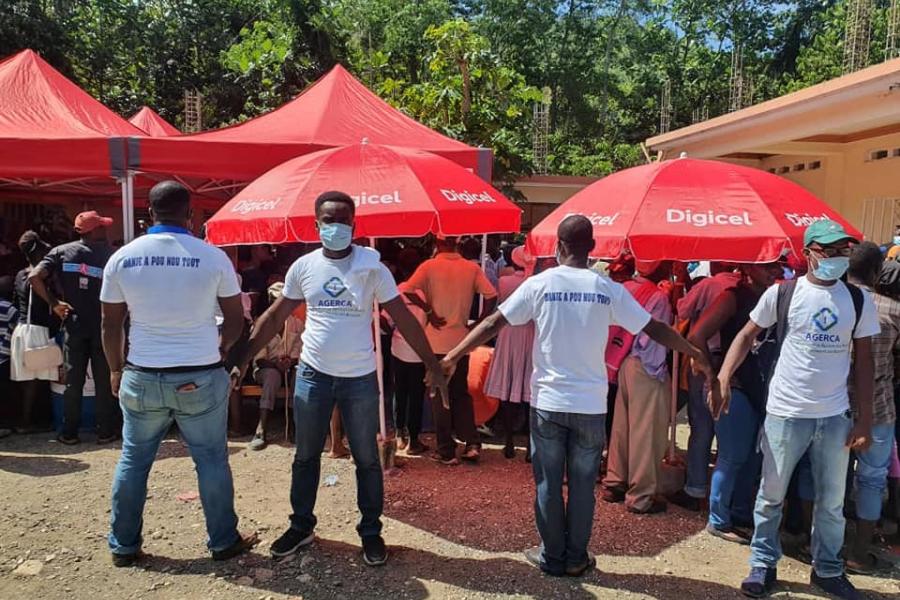
The private sector can also play an important role following humanitarian disasters. Fania Joseph, is Executive Director of the Alliance for Risk Management and Business Continuity (AGERCA).
“We coordinate private sector and civil society response actions in the event of a crisis or disaster. We are part of the Connecting Business initiative, a joint project of UNDP and OCHA that brings together dozens of organizations like ours around the world.
Through AGERCA, the private sector is mobilizing to help our country better manage risks and disasters.
We are helping with the coordination of donations, the promotion of local purchasing, logistics, information sharing. During the last earthquake last year, we provided more than 60 telephone lines for the members of the Emergency Operation Centre.”









